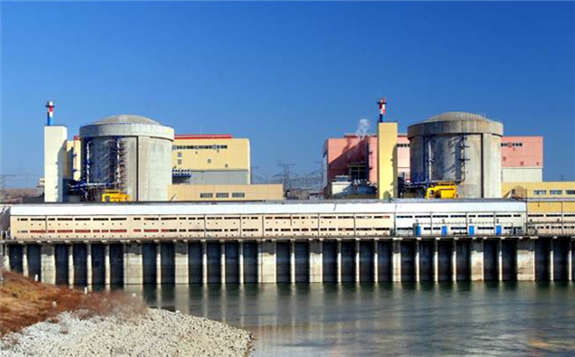Romania plans to create a Strategic Coordination Committee for the project to build units 3 and 4 at the Cernavoda nuclear power plant, according to a notice in the government’s official gazette on 14 July. The notice followed another published the same day, stating that the prime minister's 2018 decision to establish a working group for the negotiation of a draft intergovernmental agreement between Romania and China for the project had been abrogated.

Romania announced in January that it was cancelling its plan to build the new units together with China General Nuclear (CGN). Romanian national nuclear company Nuclearelectrica had signed a preliminary investors' agreement with CGN In May 2019 to build two 700 MWe Candu 6 pressurised heavy water reactors at the Cernavoda plant.
The Romanian Atomic Forum (Romatom) has welcomed the decision to establish a Strategic Coordination Committee, saying it "represents an element of progress" in increasing the country's nuclear power capacity, "especially in the context of European decarbonisation policies and Romania's 2050 environmental goals". The Cernavoda plant expansion project will play a major role, it added, in increasing the country's level of industrialisation.
"The development of additional nuclear energy production capacities in Romania is provided both in the Romanian Energy Strategy 2019-2030 with a view to 2050 and in the National Integrated Plan in the field of Energy and Climate Change 2021-2030, with nuclear energy representing a pillar of decarbonisation as well as one of ensuring energy security in Romania," Romatom said.
Nuclear energy meets about 18% of Romanian electricity demand and 33% of its low-carbon electricity. It provides 11,000 jobs, which could increase to 19,000 should the Cernavoda plant expansion project go ahead, Romatom said. The potential participation of the Romanian nuclear industry in completing the project with goods and services is estimated to be about EUR1 billion to EUR1.6 billion, or 25-40% of the total value of an engineering, procurement, construction and commissioning contract for the project, it added.
Romatom President Lucian Rusu said: "The continuation of the nuclear programme in Romania will highlight the operating experience already acquired at units 1 and 2, and will contribute to ensuring the energy independence of our country and maintaining a balanced and diversified energy mix with a direct impact on the electricity tariff for the population. Stimulating investments in the energy sector is both a necessary measure for the post-COVID economic recovery and Romatom members are looking forward to the opportunity to contribute to this endeavour."
Minister of Economy, Energy and the Business Environment Virgil-Daniel Popescu will head the new committee, while Minister of Public Finance Florin-Vasile Cîțu, Presidential Adviser Cosmin-Ștefan Marinescu and the Head of the PM Chancellery Ionel Dancă will serve as its other three members.
In July 2014, China Nuclear Power Engineering Co (CNPEC) signed a "binding and exclusive" cooperation agreement with Candu Energy for the construction of two more reactors at the Cernavoda plant in Romania. CGN is CNPEC's parent company.
Cernavoda is already home to two operating 650-MWe Candu 6 reactors supplied by Candu Energy's predecessor, Atomic Energy of Canada Ltd (AECL), and built by a Canadian-Italian consortium of AECL and Ansaldo. Unit 1 started up in 1996, but work was suspended on a further four units in 1991. Unit 2 was subsequently completed and has been in operation since 2007. Operator Nuclearelectrica plans to extend the operating life of unit 1 to 60 years.